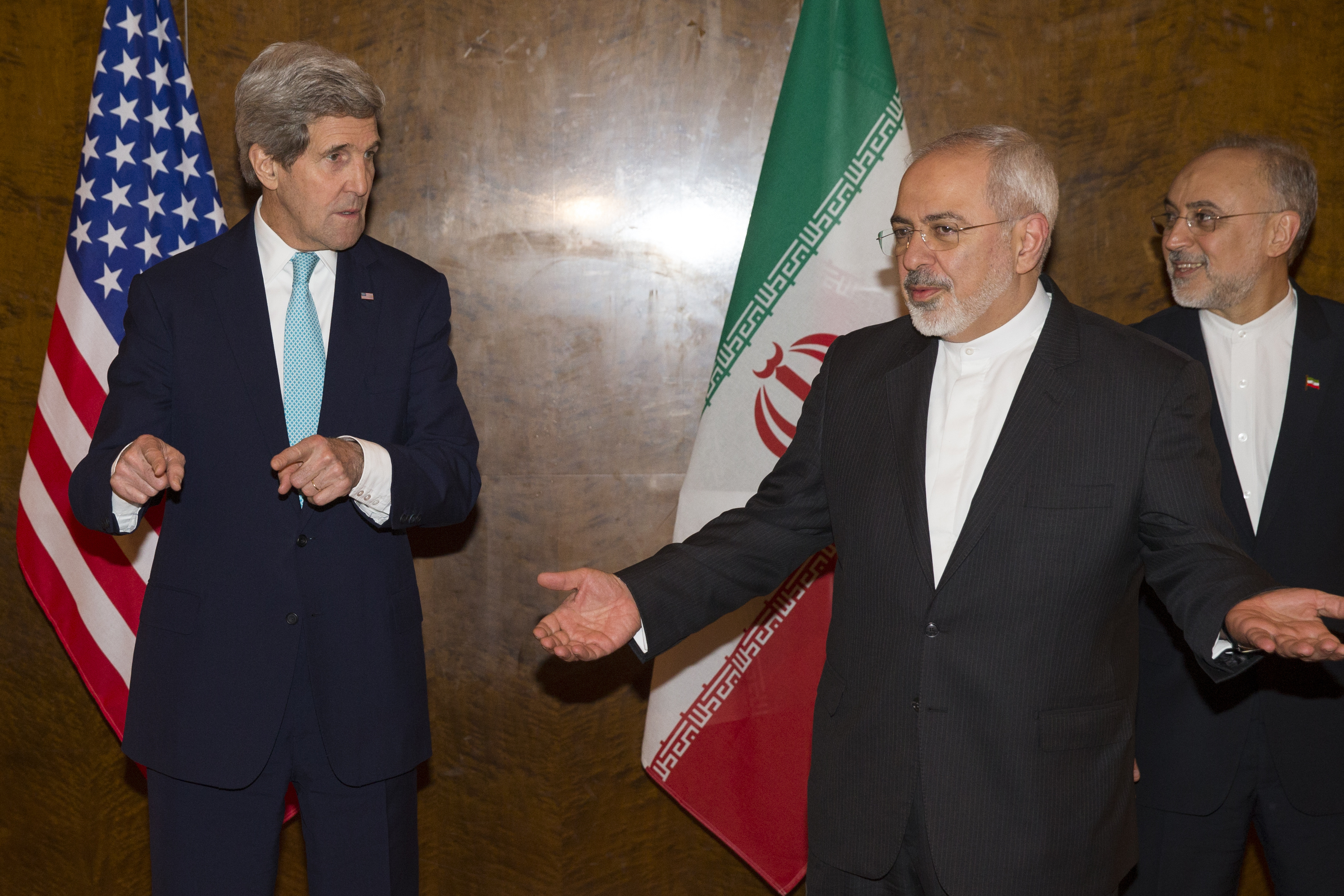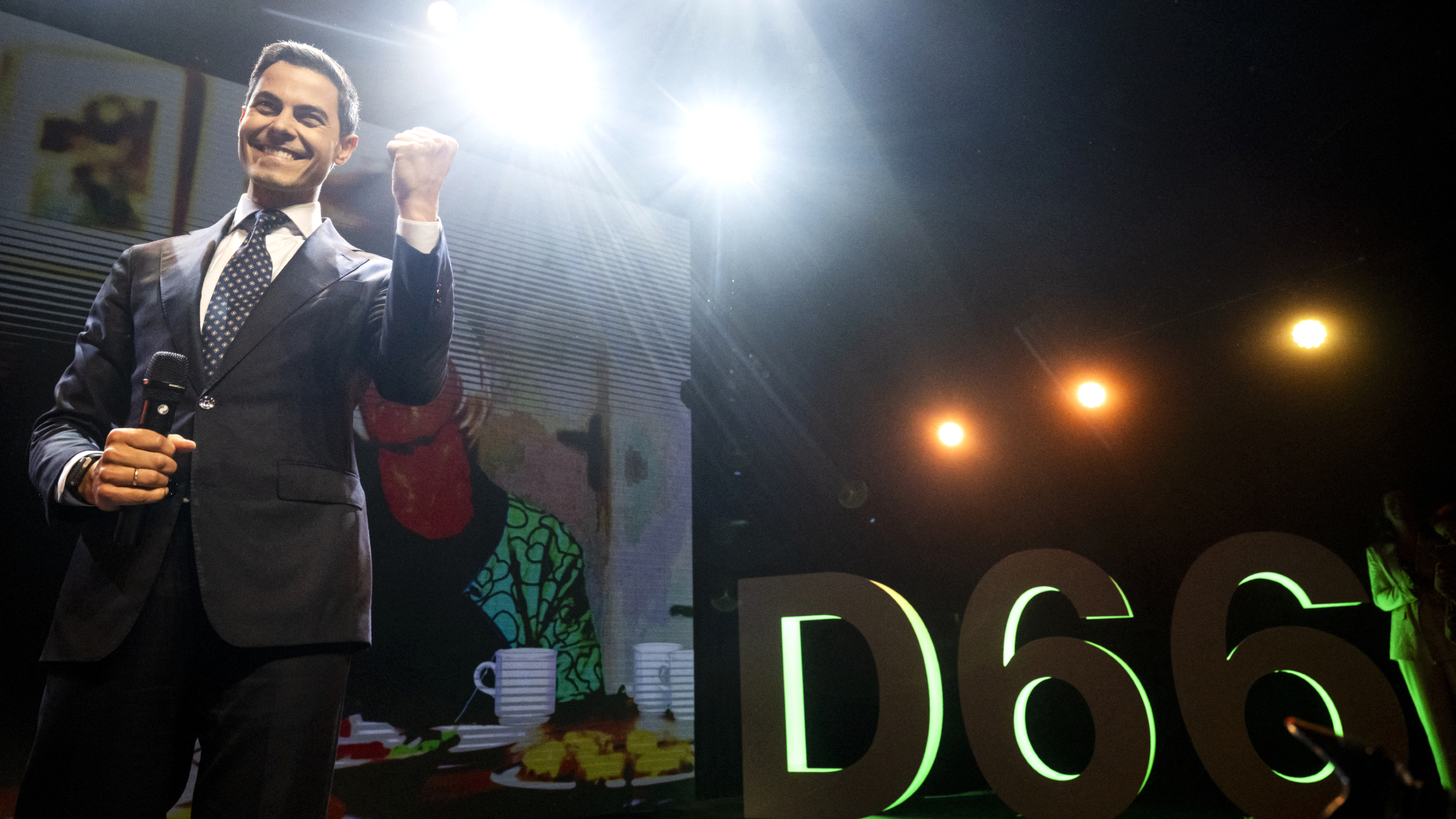Why a U.S.-Iran friendship is just wishful thinking
Some have speculated that a nuclear deal is just the beginning. Here's why you shouldn’t believe them.

If Mohammad Javad Zarif had a second career, he would be in a high wire act.
Bright lights and swirling crosscurrents are nothing new for the Iranian foreign minister, who walked into the auditorium at New York University last Wednesday after nearly a month of sharp rhetoric surrounding a potential nuclear deal.
First there was the disagreement between Iran, the United States, and France over what, exactly, they had all agreed upon in an April 2 framework deal to lift economic sanctions in exchange for halting Iran's nuclear weapons program. Next came Sen. Tom Cotton's (R-Ark.) infamous letter to the "leaders of the Islamic Republic of Iran" signed by 47 of his colleagues, apparently attempting to thwart any final agreement. Then on April 20, Washington Post reporter Jason Rezaian was charged by Tehran with four crimes, including espionage.
The Week
Escape your echo chamber. Get the facts behind the news, plus analysis from multiple perspectives.

Sign up for The Week's Free Newsletters
From our morning news briefing to a weekly Good News Newsletter, get the best of The Week delivered directly to your inbox.
From our morning news briefing to a weekly Good News Newsletter, get the best of The Week delivered directly to your inbox.
None of this has seemed to dampen the optimism of Zarif, who insisted that an agreement could still be made. "I believe it can be done. I believe it should be done," said the Iranian foreign minister. "I believe it is an opportunity for all of us we should not miss."
Zarif had a special message for Sen. Cotton as well. After outlining the process by which sanctions would be removed on Iran in the United Nations, he said they "will be mandatory for all member states, whether Senator Tom Cotton likes it or not" to a room of laughter. "I couldn't avoid that."
The optimism that Zarif portrayed was significant, especially after reports indicated that there were disagreements on the wording of a final deal between the two sides. "They are not insurmountable," Zarif said of the wording issues. "They can be resolved and they will be resolved."
With a nuclear deal increasingly likely, some have speculated that a broader rapprochement between the United States and Iran is possible. Leslie Gelb, president emeritus and board senior fellow at the Council on Foreign Relations, wrote that an agreement could "open paths to taming dangerous conflicts in Syria, Iraq, and Afghanistan." And Kai Bird wrote in The New York Times recently that a nuclear deal "opens the door just a crack to the possibility of a major strategic rapprochement between American and the Shiite Islamic community," including Iran.
A free daily email with the biggest news stories of the day – and the best features from TheWeek.com
Rapprochement between Iran and the United States centers around the idea of shared threats. Iran, like the United States, has been forced to reckon with the rise of ISIS in Iraq and Syria. And both the U.S. and Iran are threatened by growing instability in Yemen. A working relationship over these issues might be the key to solving them, the thinking goes. But shared threats are not the same as shared interests.
Iran has an interest in maintaining Shia influence in Iraq, while the United States has an interest in stability. This distinction is important. Iranian-supported Shiite militias might be able to recapture Iraqi and Syrian cities, but taking back Sunni cities with a Shiite army won’t lead to stability. After Shiite militias retook the Iraqi city of Tikrit, for example, there were reports of executions and mutilations of the population.
This same distinction between common threats and interests applies to the conflict in Yemen as well. Iran and the United States are both threatened by growing instability and al Qaeda gains in Yemen, but interests don't overlap. A Shiite government in Yemen would be a significant boon for the Iranians for geopolitical reasons — it provides easy access to Saudi Arabia, which lies on Yemen's northern border. For the United States however, an Iranian-backed Houthi government would likely lead to further instability along sectarian lines, and prolonged civil war.
Simply put: Don't expect a potential nuclear deal to be the start of a radical shift on other areas of Iranian foreign policy.
Many of Zarif’s comments in New York City didn't discourage this conclusion. While the foreign minister made a number of interesting proposals for more dialogue, other statements cast doubt on the possibility of rapprochement on other foreign policy issues.
"We don't believe that you can bombard people into submission," Zarif said of the Saudi airstrikes in Yemen, including those against the Houthi rebels.
Zarif's comments on Yemen seemed particularly contradictory in relation to the support his government has given the Syrian government. The Iranian Quds Force, an organization similar to the American CIA, has been heavily involved in the campaign waged by President Bashar al-Assad against his own people. The Iranian government spends $35 billion per year to help the Assad government, according to one estimate.
The moderator, David Ignatius, asked whether Assad's removal could be a point of negotiation, given how the dictator has become such a popular recruiting tool for ISIS. Zarif didn’t seem interested in putting aside sectarian alliances, and instead set up a straw man argument. "I find that premise to be unsupported by the facts of the past three to four years, and I believe that the reason we have the continued bloodshed in Syria is because people have insisted on that precondition," Zarif said.
This statement is demonstrably false — the Syrian National Coalition, regarded as the leading opposition group, has already dropped that precondition. And it's why a U.S.-Iran partnership beyond a nuclear deal isn't in the works. No matter how well Zarif plays to an American audience, the two sides just don't see eye-to-eye.
-
 Lazarus: Harlan Coben’s ‘embarrassingly compelling’ thriller
Lazarus: Harlan Coben’s ‘embarrassingly compelling’ thrillerThe Week Recommends Bill Nighy and Sam Claflin play father-and-son psychiatrists in this ‘precision-engineered’ crime drama
-
 Dutch center-left rises in election as far-right falls
Dutch center-left rises in election as far-right fallsSpeed Read The country’s other parties have ruled against forming a coalition
-
 The Rose Field: a ‘nail-biting’ end to The Book of Dust series
The Rose Field: a ‘nail-biting’ end to The Book of Dust seriesThe Week Recommends Philip Pullman’s superb new novel brings the trilogy to a ‘fitting’ conclusion
-
 'Once the best in the Middle East,' Beirut hospital pleads for fuel as it faces shutdown
'Once the best in the Middle East,' Beirut hospital pleads for fuel as it faces shutdownSpeed Read
-
 Israeli airstrikes kill senior Hamas figures
Israeli airstrikes kill senior Hamas figuresSpeed Read
-
 An anti-vax conspiracy theory is apparently making anti-maskers consider masking up, social distancing
An anti-vax conspiracy theory is apparently making anti-maskers consider masking up, social distancingSpeed Read
-
 Fighting between Israel and Hamas intensifies, with dozens dead
Fighting between Israel and Hamas intensifies, with dozens deadSpeed Read
-
 United States shares 'serious concerns' with Israel over planned evictions
United States shares 'serious concerns' with Israel over planned evictionsSpeed Read
-
 Police raid in Rio de Janeiro favela leaves at least 25 dead
Police raid in Rio de Janeiro favela leaves at least 25 deadSpeed Read
-
 Derek Chauvin's attorney files motion for new trial
Derek Chauvin's attorney files motion for new trialSpeed Read
-
 At least 20 dead after Mexico City commuter train splits in overpass collapse
At least 20 dead after Mexico City commuter train splits in overpass collapseSpeed Read